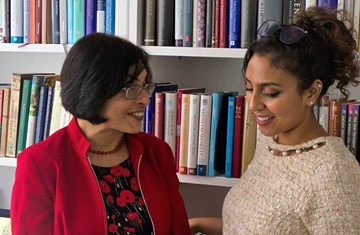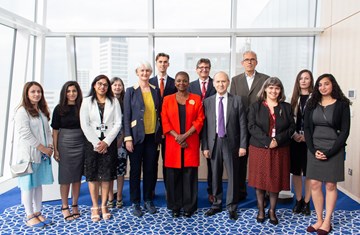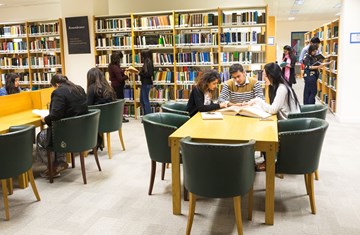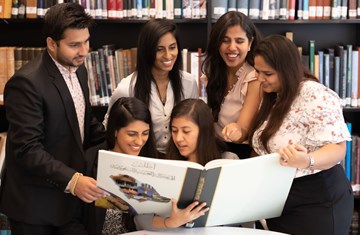Student Services
Contact AdmissionsStudent Services are responsible for overseeing non-academic matters relating to admissions, immigration, accommodation, student welfare, and graduation. Student Services can offer advice, guidance and support to help students get the most out their time as a student in London.
Students with disabilities will be supported to achieve equality of opportunity to engage with their studies. We can provide advice and guidance for all students with disabilities. Students are invited to discuss their needs with the Student Services; all discussions are in complete confidence.
- If you have a disability that might have an impact on your studies, please do let us know so we can ensure reasonable adjustments, if needed, can be made.
- If you have not already disclosed your disability on the application form, please contact Student Services.
UCL Student Services
- STEP students are registered as students of the IOE, and therefore have access to the following resources: counselling service, disabilities support, international student support, student welfare, and Students’ Union. In addition, the International Student Support and Welfare Team at UCL provide specialist support and advice for all non-UK students.
Student Services and UCL Student Support and Wellbeing
- As UCL students based at the Institute of Education, STEP students also have access to a number of different resources and support, as well as support offered by our Student Helpdesk team and the Academic Programme Office.
- As STEP students study as part of the UCL Institute of Education, they are able to access UCL’s Student Support and Wellbeing Service (SWW). SSW service offers a range of support, including counselling, international student support, an interfaith service and support for disabled students.
In addition to the counselling services provided by UCL, the IIS also has a service agreement with the University of Westminster Counselling Service.
- Students have access to professional and experienced counsellors who are used to working with people from a range of different backgrounds and cultures.
- Students may discuss anything that is bothering them in confidence, from an inability to study, homesickness, anxiety, depression to relationship problems and bereavement.
The IIS and its partners are firmly committed to equal opportunities for all students, regardless of gender, sexual orientation, marital or civil partnership status, ethnic origin, race, religion, colour, nationality, political beliefs, gender reassignment, pregnancy and maternity, disability and age.
UCL’s Equality and Diversity Policy SOAS Equality and Diversity PolicyThe IIS maintains a robust system whereby students participate in decision-making and academic governance processes pertaining to their educational experience. The approach goes beyond representation and feedback, constituting a continuing partnership whereby students are actively involved in decision-making. This is reflected in their representation on all decision making bodies, including governance committees either as student representatives or student nominated ‘student voices’.
In terms of academic governance, each cohort for both graduate programmes elects two student representatives to sit on the following committees:
- The STEP Joint Management Committee (JMC), a joint committee with the UCL Institute of Education
- The STEP Joint Programme Committee (JPC), a joint committee with SOAS University of London
- IIS-ITREB UK Joint Committee
- Staff – Student Liaison Committee
In addition to formal student representation, one student, selected by their peers as ‘student voices’, participate in the Academic Management Committee (AMC) on a termly basis. ‘Student voices’ also attend the Board of Governors meetings for specific student-agenda related items on a termly basis providing consultative input. Students are also invited to sit on the Academic Council (AC), the senior academic governance body at the IIS. The AC strives to ensure its membership is broad and reflects the diversity of academic experiences and skills at the Institute, including students. For this purpose, two seats on the AC are reserved for students, one from GPISH and one from STEP.
- Students are regularly consulted on new initiatives and policy developments that are of relevance to their student experience. Extensive feedback is sought from students, starting at orientation and running throughout their studies. These range from formal evaluation mechanisms, including Mid-term Reviews for STEP, to the collection of verbal and written feedback from Student representatives and Student voice platforms.
- Student representatives also receive specific induction training and briefing in addition to a Student representatives handbook, facilitating the effectiveness of their role.
- This deliberate engagement ensures that relevant policies and procedures and ongoing enhancements at strategic and procedural levels are informed by student perspectives.






